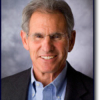Jon Kabat-Zinn

Jon Kabat-Zinn
Jon Kabat-Zinnis Professor of Medicine Emeritus and creator of the Stress Reduction Clinic and the Center for Mindfulness in Medicine, Health Care, and Society at the University of Massachusetts Medical School. Kabat-Zinn was a student of Buddhist teachers such as Thich Nhat Hanh and Zen Master Seung Sahn and a founding member of Cambridge Zen Center. His practice of yoga and studies with Buddhist teachers led him to integrate their teachings with those of science. He teaches mindfulness, which he...
NationalityAmerican
ProfessionEducator
Date of Birth5 June 1944
CountryUnited States of America
Simply put, mindfulness is moment-to-moment non-judgmental awareness.
In any given moment we are either practicing mindfulness, or defacto, we are practicing mindlessness.
Mindfulness means being awake. It means knowing what you are doing.
Mindfulness is not about getting anywhere else.
Mindfulness is so powerful that the fact that it comes out of Buddhism is irrelevant.
Buckminster Fuller himself was fond of stating that what seems to be happening at the moment is never the full story of what is really going on. He liked to point out that for the honey bee, it is the honey that is important. But the bee is at the same time nature's vehicle for carrying out cross-pollination of the flowers. Interconnectedness is a fundamental principle of nature. Nothing is isolated. Each event connects with others.
The only time that any of us have to grow or change or feel or learn anything is in the present moment. But we're continually missing our present moments, almost willfully, by not paying attention.
There are a lot of different ways to talk about mindfulness, but what it really means is awareness.
Writing can be an incredible mindfulness practice.
You are whole and also part of larger and larger circles of wholeness you many not even know about. You are never alone. And you already belong. You belong to humanity. You belong to life. You belong to this moment, this breath.
Mindfulness means paying attention in a particular way: on purpose, in the present moment, and non-judgmentally.
Meditation had never been tried before in a medical center, so we had no idea whether mainstream Americans would accept a clinic whose foundation was intensive training in meditative discipline.
I don't want people following Jon Kabat-Zinn. I want them following themselves.
I loved science, and when I discovered Buddhist meditative practices and martial arts, I was able to bridge those ways of knowing the world into my own unique way. From that grew the Mindfulness-Based Stress Reduction (MBSR) program, which became my karmic assignment.